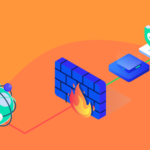When starting to create an application or website, the first discussion in a development team is about which platform or framework to develop it.
Node.js is an open source JavaScript toolkit, which is why it includes the JS badge, which is designed to generate web applications in a highly optimized way. It was born in 2009 and quickly managed to become a milestone in the development and deployment of apps.
How Node.js works
JavaScript (JS) runs client-side, right in the browser, right? Well, not anymore. Node.js is a way to run event-based server-side JavaScript using the V8 engine, developed by Google for use in its Chrome browser.
Leveraging the V8 engine, it allows Node to provide a server-side runtime that compiles and runs JS at incredible speeds. It does this in native machine code and in real time, rather than interpreting or executing it as bytecode. Node runs today on almost any operating system.
PayPal, Trello, Uber, thousands of apps and even NASA use Node.js as the server-side development technology for their web applications.
Why use Node.js to develop applications
It is efficient, fast, lightweight and powerful, and that makes developers opt for Node.js. But this is only a superficial appreciation. Let’s analyze the most important reasons that influence the balance in favor of Node.js:
- Node.js does not have a complicated learning curve. The option to use the same language on both the server and client sides can bring significant benefits.
- The development speed is greatly accelerated due to the lightness of the technology as well as numerous useful open source JS tools.
- It has an entire development community behind it and new features are released every week.
- Surely the biggest advantage of this programming language is scalability. Engineers and developers appreciate the ability to add new modules to the application logic instead of “killing themselves” integrating new components into a monolithic structure.
- Reduces response time. The technology does not create more threads when handling a larger number of simultaneous requests. As a result, fewer resources are dedicated and everything responds much faster.
- As we told you above: the ability to run Node.js applications on almost all popular platforms, including OS X, Windows, Linux, FreeBSD, NonStop and more.
Node.js hosting for your applications
Node.js is secure, but at the same time the Hosting environment, whether it is shared Hosting, Cloud VPS or a Dedicated Server, must respond with a high level of security, as well as guarantee the accessibility of the application.
Today there are different hosting options and providers for applications based on Node.js.
The golden rule is to choose one that provides you with a solution designed for demanding and experienced developers, who need a balance between high-performance hardware and excellent support when they need it. Here we recommend that you stay with whoever best accompanies you and can accompany your growth!
At WNPower we create the perfect elastic environment to offer you Node.js Hosting, with all the features of the cloud, based on different preferences that we constantly take from our clients. We permanently create the ideal Hosting!
What to look for in Node.js Hosting?
Node is not very demanding. You don’t need a lot of RAM or CPU power in your web instance to run an application. However, questions like “how much CPU do I expect to consume,” “what database engine to implement,” or “what number of concurrent processes do we need” are key decision criteria.
Hosting companies offer ready resource packages such as RAM, secured CPU, data storage volume and connectivity. When deploying your application, it is important that you think about the future when making your first consumption measurements to be able to calculate your growth curve.
It is vitally important that you ask your provider what the escalation diagram is so that you do not run around or encounter limitations at the last minute, or during traffic peaks. Specifically at WNPower we are elastic and you will always have one more step to grow!
Traffic and storage
Storage and connectivity are metrics to “come down to earth” in the search for your ideal provider. When making the estimate, it is important that you take into account how much connectivity or traffic your application is going to consume, and how much data you are going to store. This way you can determine together with your provider which service or package to use. Although we recommend opting for company hosting or cloud hosting, shared hosting is usually useful enough in the initial testing stage.
What type of Hosting to choose
As a general rule, three types of Hosting should be considered starting with shared hosting, which is the cheapest option, but with limited capabilities. Next comes a virtual private server (Cloud VPS) that offers dedicated resources (RAM, CPU, storage and connectivity) on cloud infrastructure.
Sometimes setting up a Cloud VPS server can be cumbersome and that is why at WNPower we think of our Cloud Hosting for those who prefer to delegate the management of the service and focus on the creative part of the application development process, with a service billed per instance and use. like any real cloud solution.
It goes without saying that a Cloud VPS or Cloud Hosting is preferable to a common and wild shared Hosting service. For larger requirements or for the “hardcore” there are Dedicated Servers.
Scalability and budget
If your application grows, it is very possible that the Hosting plan initially chosen will outgrow you in a short period of time. With this in mind, you should consider preparing some margin in your budget to go to a larger plan. For cases like this we created WNPower Boost, so that for any temporary spike in your visits or processes, you have that extra resource you need, at no cost and your app, online!
Conclusion
If you choose to take a smart and sustainable approach when choosing a hosting service, you are much more likely not to have infrastructure or resource problems in the future.








